Shinde vs Thackeray: Both Shiv Sena factions lock horns over organising Dussehra rally as poll fever grips
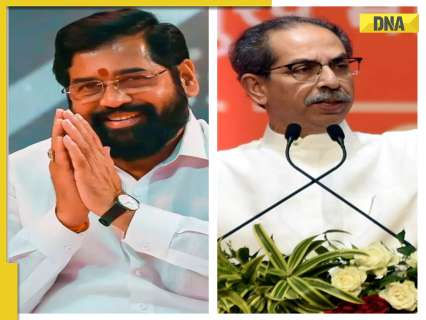
Shiv Sena (UBT) faction led by Uddhav Thackeray and Shiv Sena-led by Chief Minister Eknath Shinde will hold separate Dussehra rallies in the state on Saturday, aiming to show their strength just before the assembly polls in the state.
Former Cricketer Ajay Jadeja named heir to Jamnagar royal throne
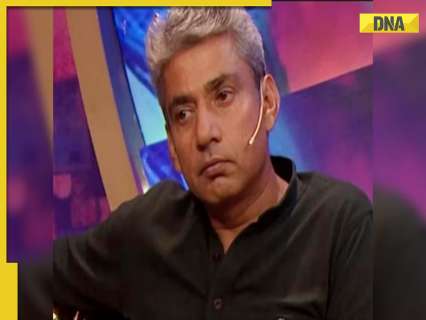
Shatrusalyasinhji Digvijaysinhji Jadeja stated that Ajay agreed to become his heir. Shatrusalyasinhji, Jam Saheb of Nawanagar, is the cousin brother of Ajay’s father.
‘We believe in Donald Trump’: More than a dozen Medal of Honor recipients endorse former president
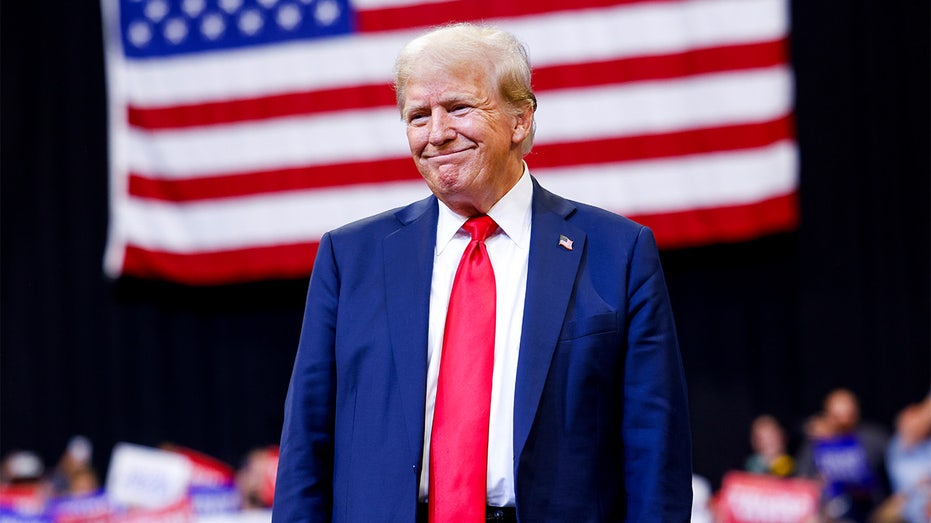
More than a dozen Congressional Medal of Honor recipients endorsed former President Trump in the 2024 presidential race. “We, 15 recipients of the Medal of Honor, having served this great nation in wars, support and endorse Donald J. Trump for President of the United States,” they wrote. The recipients include those who have served in Iraq, Afghanistan and Vietnam. HUNDREDS OF NATIONAL SECURITY OFFICIALS, EX-CABINET MEMBERS, GOLD STAR FAMILIES ENDORSE TRUMP “We believe that American citizenship is a revered privilege. We believe that a patriotic nation is a strong nation. We believe that the sacrifices by the men and women in our armed forces preserves and protects American freedom,” they wrote. “We believe that the integrity of our institutions is fundamental to the trust placed in them. We believe in the commitment to the United States Constitution and our solemn oaths to protect it. We believe valor is great fortitude when faced with profound adversity,” they continued. “We believe in the devoted pledge of allegiance to the United States of America. We believe that American veterans should be celebrated and supported by our nation,” they wrote. “We believe that our nation must have borders secure from our enemies.” The recipients also said they believe in “protecting the right for all citizens to participate in free and fair elections.” TRUMP, HARRIS LOCKED IN DEAD HEAT IN 7 BATTLEGROUND STATES, POLL FINDS: ‘COULD NOT BE CLOSER’ In an apparent swipe at Vice President Kamala Harris’ running mate, Minnesota Gov. Tim Walz, the recipients said they believe that “fabricating military service is beneath the dignity of a veteran and demeaning to those who have served honorably in the Armed Forces.” Walz had come under fire for his service in the Minnesota National Guard. He retired in 2005 after 24 years of service ahead of his battalion being deployed to Iraq. He’s been faced with accusations of “stolen valor,” with some saying he retired early and did not complete trainings. The recipients also said they believe that “the enemies of freedom must be defeated,” and that “the flag is a powerful symbol of freedom.” CLICK HERE TO GET THE FOX NEWS APP “We believe the United States of America is the greatest nation the world has ever imagined. We believe in mutually pledging to every American our Lives, our Fortunes, and our sacred Honor,” they wrote. “We believe in Donald Trump.” Meanwhile, the Harris-Walz campaign touted in September the endorsements from “a bipartisan group of more than 700 national security leaders and former military officials.” The Harris-Walz campaign declined to comment on the Trump endorsements when reached Friday by Fox News Digital.
Why Trump is headed into ‘the belly of the beast’: The strategy behind his blue state stops
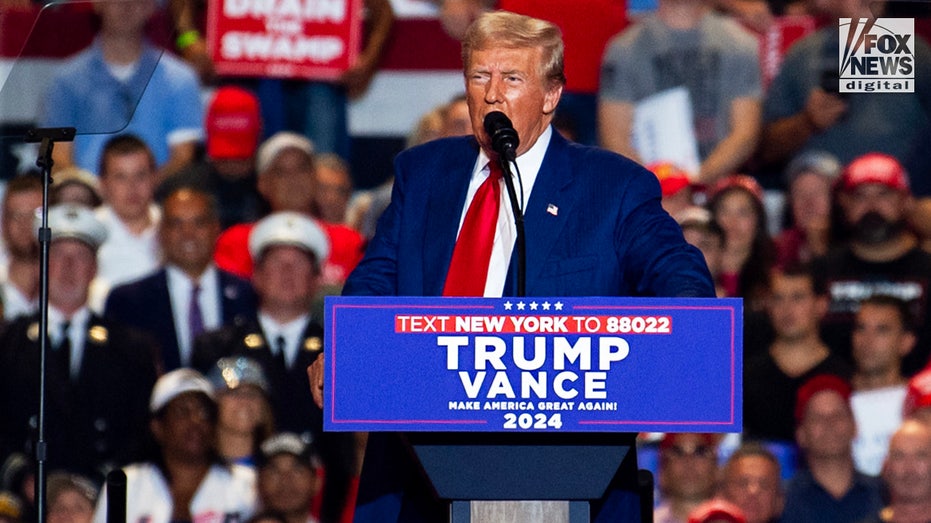
With three-and-a-half weeks until Election Day, former President Trump is holding a rally in Southern California on Saturday. His campaign also announced this week that the Republican presidential nominee will hold a rally in New York City’s Madison Square Garden later this month. On Friday, Trump stopped in Colorado, and on Tuesday he’s scheduled to parachute into Illinois. It’s been 40 years since a Republican carried New York in a presidential election, 36 years since California and Illinois went red in a White House race, and two decades since the GOP captured Colorado. THE CLOSER: FORMER PRESIDENT OBAMA HITS THE TRAIL FOR HARRIS IN THE CLOSING STRETCH With time an extremely precious commodity for the presidential campaigns in the final stretch of a White House showdown in a margin-of-error race with Vice President Kamala Harris, many are wondering why Trump is stopping in blue states, which his chances of carrying are extremely slim to nonexistent. “We just rented Madison Square Garden. We’re going to make a play. We’re going to make a play for New York. Hasn’t been done in a long time. It hasn’t been done in many decades,” Trump said at a rally in Pennsylvania this week, hours after his campaign announced the New York City date. CHECK OUT THE LATEST FOX NEWS POLLING IN THE 2024 ELECTION “We’re making a play for New Jersey. We’re making a play for Virginia,” Trump continued, before adding that he’s also aiming to compete in Minnesota and New Mexico. Despite the former president’s bravado about expanding the electoral map, the latest Fox News Power Rankings in the 2024 presidential election rank New York, New Jersey, California and Colorado as solid Democrat, with Minnesota, New Mexico and Virginia as likely blue. Trump on Saturday will headline a rally in Coachella, a city in California’s Riverside County southeast of Palm Springs that’s best known nationally for a music festival that takes place nearby every April. “President Trump’s visit to Coachella will highlight Harris’ poor record and show that he has the right solutions for every state and every American,” Trump campaign spokesman Steven Cheung said in a statement. The stop in Coachella may also benefit Trump with Latino voters — who have been trending towards the GOP in recent years — not only in southeast California, but more importantly in neighboring Arizona and Nevada, two of the seven crucial battleground states that will likely determine if the former president or Harris wins the 2024 election. CLICK HERE FOR THE LATEST FOX NEWS POWER RANKINGS Trump’s rally in Madison Square Garden on Oct. 27 will be his third major campaign event in Democrat-dominated New York this year. Last month, he packed the Nassau Coliseum in Uniondale, just outside of New York City. And he attracted thousands at a rally in NYC’s borough of The Bronx in May. He also held a large rally in May along the shore in New Jersey. “Choosing high-impact settings makes it so the media can’t look away and refuse to cover the issues and the solutions President Trump is offering,” a senior Trump campaign adviser told Fox News when asked about the strategy of holding October events in blue states. “We live in a nationalized media environment and the national media’s attention on these large-scale, outside-the-norm settings increases the reach of his message across the country and penetrates in every battleground state.” Longtime Republican strategist Jesse Hunt, a veteran of multiple GOP presidential campaigns, noted that these stops in blue states are less about geography and more about the message. “Trump is creating a lot of unique and interesting contrast situations that can then be beamed into a mass audience in states that they care about,” Hunt said. “You have to create compelling narratives, compelling contrasts. I think that’s part of what Trump is doing.” Hunt argued that Trump is a pro “at creating these moments that penetrate our fractured media environment” and that “voters in Georgia, voters in North Carolina, are certainly going to consume news about Trump’s event in Madison Square Garden.” Pointing to veteran campaign strategists Chris LaCivita and Susie Wiles, who are steering Trump’s 2024 campaign, Hunt said they’re “a pretty smart team… and they’re not going to waste his time.” Seasoned Republican strategist Matthew Bartlett agreed that “we are at a point where everything is nationalized.” He argued that the Trump blue state events “will spin an entire news cycle. It will give his supporters talking points. And I think there’s admiration of going into the belly of the beast, to going into your opponent’s territory.” Bartlett added that “of course, there’s a downside.” “In the waning days, if this strategy proves ineffective, it could be similar to what Hillary Clinton did, which was mismanaged her time in the last few days of 2016, by not being in the critical swing states, not being in places where you have to drive turnout,” he warned. Get the latest updates from the 2024 campaign trail, exclusive interviews and more at our Fox News Digital election hub.
Here’s what happened on Air India flight with hydraulic failure, that circled for two hours, made emergency landing in..
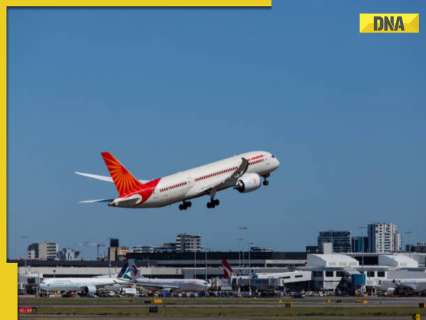
A report of hydraulic failure from an Air India Express flight, causing mid-air scare and prompting the airplane to hold a subsequent circling pattern for nearly two hours, has left many wondering what actually hapepened in the interim.
‘Before this government wakes up…’: LoP Rahul Gandhi’s scathing attack after Tamil Nadu train accident
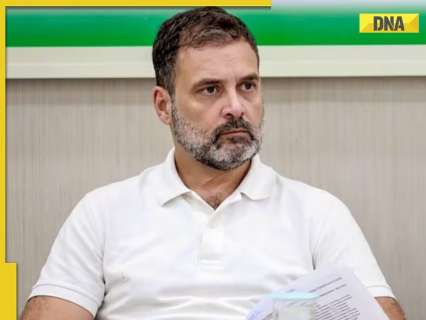
An express train, at 75 kmph speed, hit stationary goods train on Friday in Tamil Nadu as it entered a loop line instead of getting into the main line, railway officials said, adding that a number of passengers were injured and a coach caught fire.
Good news for Delhi-NCR commuters, Delhi-Mumbai Expressway nears completion, set to open by…
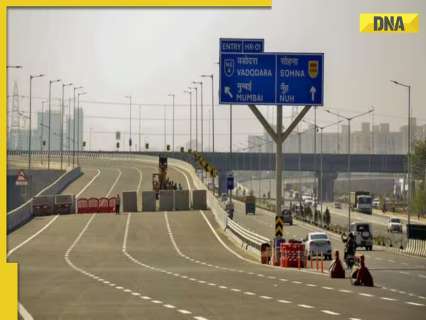
Delhi-Mumbai Expressway: Initially, National Highways Authority of India (NHAI) officials planned to open this section of the expressway for traffic by February 20.
Trump calls for death penalty for migrants who kill US citizens, police
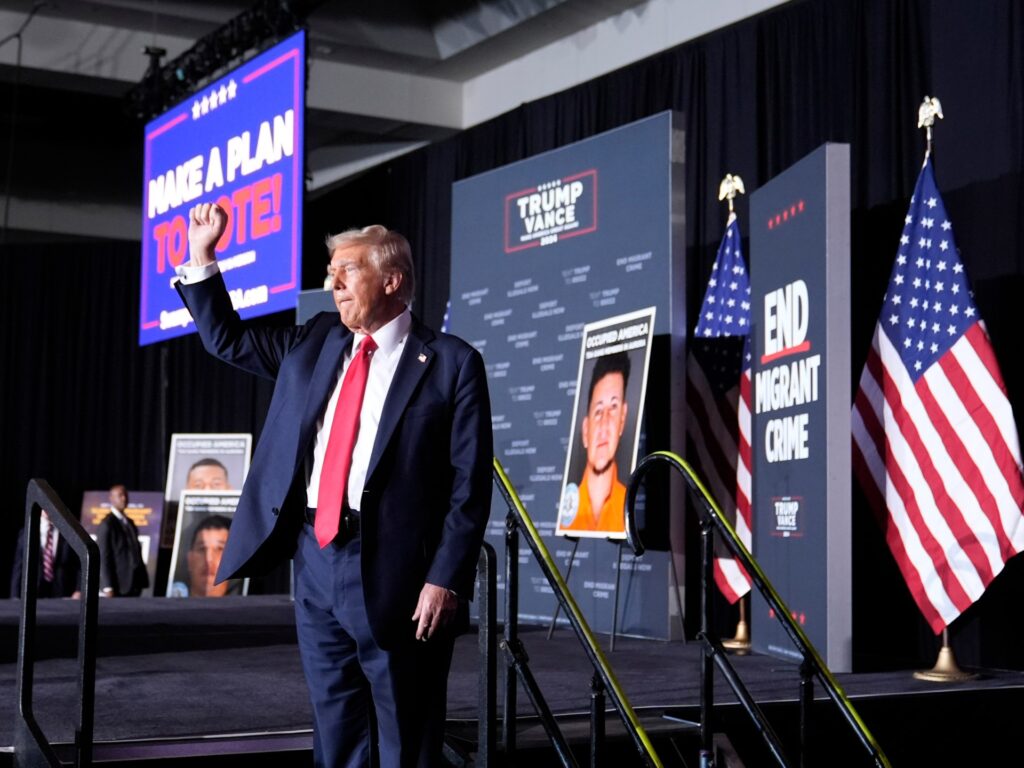
Republican presidential candidate Donald Trump has called for the death penalty for migrants who kill United States citizens or members of law enforcement, as part of an incendiary rally in Aurora, Colorado. In his Friday night speech, Trump, a former president, repeated false and misleading claims about immigrants in the US, leaning into nativist sentiment as he campaigns for a second term. “Now America is known all throughout the world as occupied America,” he told the rally, citing a supposed “invasion” of migrants. Trump also laid out a stark vision for his first days in office, if re-elected, with policy proposals hinged on mass deportation. “To everyone here in Colorado and all across our nation, I make this pledge and vow to you: November 5, 2024, will be liberation day in America,” he said, with a reference to election day. Trump has repeatedly sought to demonise migrants in the run-up to the vote, pointing to an increase in southern border crossings under the administration of President Joe Biden, a Democrat. But critics have drawn parallels between Trump’s inflammatory rhetoric and the language used historically by white supremacist movements. A town in the national spotlight Trump’s campaign stop in Aurora was poised to drum up fears of immigration: He has long used the city as an example of the alleged lawlessness of migrants. The city has been besieged by misinformation in recent months, as rumours swirled that the Venezuelan gang Tren de Aragua had wrested control over parts of the city. Those claims were false. Media reports indicated they arose after a property management company — faced with accusations of decrepit conditions in its apartment buildings — blamed a gang presence for the lack of repairs. But Trump and his allies have nevertheless continued to repeat the false rumours, despite pushback from local officials. Ahead of Friday’s rally, Aurora Mayor Mike Coffman, a Republican, said in a statement on Facebook, “Concerns about Venezuelan gang activity have been grossly exaggerated.” Only a handful of incidents related to the Tren de Aragua gang have been reported in the city of 400,000, he added. “Former President Trump’s visit to Aurora is an opportunity to show him and the nation that Aurora is a considerably safe city — not a city overrun by Venezuelan gangs,” Coffman said. Furthermore, several studies have shown that undocumented migrants are far less likely to be arrested for felony and violent crimes than US-born citizens. Aurora Police Department statistics have also shown that major crimes in the city have dropped since last year. Preview of a second term Regardless, Trump repeated his false accusations on Friday, promising to “rescue” Aurora and other cities from an “invasion” of migrants. “We will begin the largest deportation operation in the history of the United States,” Trump said. “We will close the border. We will stop the invasion of illegals into our country. We will defend our territory. We will not be conquered.” The Republican candidate also invoked racist and xenophobic stereotypes, including that migrants were likely to carry illness. “They’re very sick, very sick. They’re coming into our country. They’re very, very sick with highly contagious disease, and they’re let into our country to infect our country,” Trump said. His speech included references to what he would do in his first days back in the White House if he wins November’s election. “I’m announcing today that, upon taking office, we will have an Operation Aurora at the federal level to expedite the removals of these savage gangs,” Trump said. Part of the plan, he explained, was to invoke the Alien Enemies Act of 1798, an antiquated law that allows the federal government to round up and deport foreigners belonging to a country with which America is at war. Trump then added he would seek harsh penalties for migrants involved in crimes. “I’m hereby calling for the death penalty for any migrant that kills an American citizen or a law enforcement officer,” he said, to cheers from the crowd. Race enters final phase The Aurora rally comes as Trump and his Democratic rival, Vice President Kamala Harris, enter the final stretch of the election season, with just 23 days until the vote. Trump has long promoted anti-immigrant sentiment, even before his first successful run for office in 2016. In the early and mid-2010s, he spread conspiracy theories about former President Barack Obama’s citizenship and whether the Democratic leader was secretly Muslim. When he announced his bid for the presidency in 2016, Trump campaigned in part on depictions of Mexican immigrants as “rapists”. That rhetoric continued throughout his term in office, which ended in 2021. Experts have warned that dehumanising language about migrants and foreigners can increase the likelihood of violence. But polls consistently show immigration as one of the top election issues in the US, making it fertile ground for politicians. Trump and his running mate, Senator JD Vance, have focused intensely on the issue as the November election approaches. They have sought to paint Harris as a “border czar” — a false designation — who left the US with “open borders” vulnerable to mass immigration. While southern border crossings did spike under Biden — reaching 250,000 crossings in the month of December 2023 — they have since returned to numbers similar to those seen during Trump’s term. Speaking to Latino voters during a Univision town hall on Thursday, Harris defended the Biden administration’s policy on immigration. She pointed to a recent bipartisan bill that would have toughened restrictions on the border. The bill was reportedly scuttled by Republicans loyal to Trump, reportedly at the former president’s behest. Still, critics say Harris has lurched further to the right on immigration issues. During a visit to Arizona last month, she promised to impose tougher restrictions on asylum than Biden, who has already taken action to limit asylum claims. Trump and Vance, meanwhile, have zeroed in on communities in cities like Aurora and Springfield, Ohio, to advance apocalyptic claims about immigration. Last month, for instance, the
Caught in India-China clashes, Ladakh’s nomadic herders fear for future
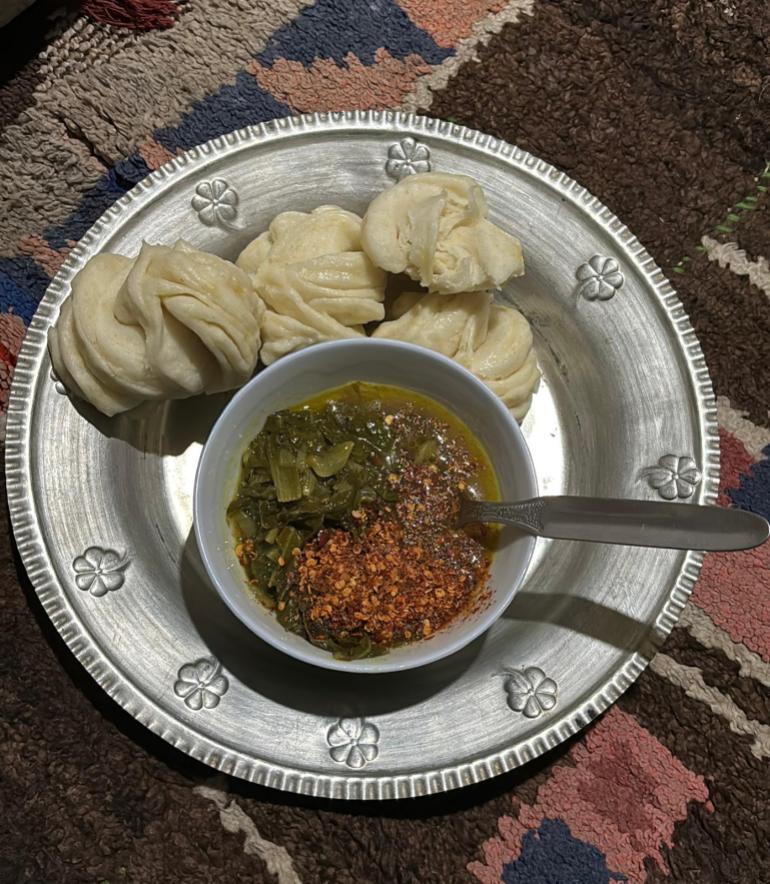
Chushul, Ladakh, India – The bubbling sound of water boiling on the stove and the aroma of spinach dal fill the air in Tashi Angmo’s kitchen as she rolls dough to make a type of Tibetan bread. “This is a dish which we call timok in Ladakh and tingmo across the border in Tibet,” she says as she prepares the apparatus to steam the dough she has rolled into balls resembling dumplings. “It’s a delicious meal after a hard day’s work.” Angmo, 51, lives in Chushul, a village which sits at an altitude of 4,350 metres (14,270 feet) in India’s Ladakh, one of the highest regions in the world, known for its pristine rivers and lakes, high valleys and mountains and clear skies. Chushul also lies about 8 kilometres (5 miles) from India’s Line of Actual Control with China, the disputed, de facto border between the two countries. A type of Tibetan bread called timok in Ladakh and tingmo across the border in Tibet [Priyanka Shankar/Al Jazeera] “I was around 11 years old when I realised that my family and I lived very close to the Chinese border. Back then, we used to be a family of shepherds, and I often went near the border with my father, to take our sheep herding,” Angmo says. She now works as a labourer doing a variety of tasks from cleaning roads to helping with construction and cooking meals for other workers, for the Border Roads Organisation – the Indian Defence Ministry’s initiative to maintain roads in the subcontinent’s border areas. Tashi Angomo lives in Chushul, a village which borders China in India’s Ladakh [Priyanka Shankar/Al Jazeera] “We even used to trade apricots and barley which grew in our village with the Chinese shepherds. In return, we brought back chicken, some Chinese cookies and also teapots!” she exclaims and points to the teapots which she still keeps in her kitchen cabinet. Even the Sino-India war in 1962 over border and territorial disputes between the neighbours, after New Delhi had given shelter to the Dalai Lama and other Tibetan refugees, did not undo that delicate balance. What did was a deadly clash in the summer of 2020. As the world was absorbed in its battle against the COVID-19 pandemic, Indian and Chinese soldiers fought with sticks, stones and their bare hands along the Line of Actual Control in Ladakh’s Galwan valley. Each side claimed that the other’s troops had crossed into their territory. The close combat fighting led to the death of 20 Indian soldiers and at least four Chinese soldiers. These were the first deaths along the border in decades. The Indo-China border seen from Chushul, which lies about 8 kilometres (5 miles) from India’s Line of Actual Control with China [Priyanka Shankar/Al Jazeera] Since then, both sides have stepped up border patrols and moved troops to the region, and their troops have occasionally engaged in standoffs. In many Ladakhi villages bordering China, grazing and farming close to the frontier has now been restricted by the Indian military. Boating in the pristine Pangong Tso lake, parts of which are claimed by both New Delhi and Beijing, has also been restricted to only military boats. “We can’t go near the border any more or trade with Chinese people. Shepherds – most of whom are nomads – have also lost land close to the border since the Indian military oversees the area,” she says. The land has largely been swallowed by military buffer zones on both sides of the border, with rich pasture land for 2km in either direction now a no-go zone for the herders. Young nomads and farmers moving away Donning a pink scarf and a grey sweater, Kunjan Dolma, who is in her late 30s, belongs to the Changpa community – seminomadic Tibetan people who live in the Changtang plateau in eastern Ladakh. She lives in Chushul during the winter months and is nomadic throughout the rest of the year. Dolma tells Al Jazeera that the land near the Chinese border is an important winter pasture for their animals. “But if we take our sheep and goats near the Chinese border, the military stops us and advises us to find grazing lands elsewhere. We have lost important pastures in recent years, but we have begun adjusting to the restrictions,” she says as she milks her sheep in an open-air shed built with stones and surrounded by the low-lying mountains. “In a way, the military restrictions also make sense. They protect us from the Chinese soldiers who I fear might take away our sheep in case we go very close to the border.” Dolma lives with her husband and teenage daughter and the family has about 200 sheep whose wool they sell to make pashmina shawls. It is an important source of income, she explains. She spends days in the mountains to ensure their yaks and sheep have access to the best grazing lands during the warmer months of the year. The Changpa community retreats to the villages in the lower-lying hills of Ladakh during winter. She earns her living selling pashmina wool, and yak meat and milk. Kunjan Dolma, who belongs to the Changpa community – seminomadic Tibetan people who live in the Changthang valley in eastern Ladakh – tends to her sheep with her family [Priyanka Shankar/Al Jazeera] But Dolma’s daughter, like many young people from the nomadic families of the Changtang plateau, has begun turning to other professions to earn a living. Dolma added that military restrictions on grazing land have also increased the momentum of young nomads turning away from this traditional way of life. Sipping on a cup of warm water before she heads to the mountains to make her cattle graze, Dolma reminisces about her younger days when border tensions did not exist in their lands. “I’ve spent many joyful days in these mountains with my sheep and when there were no border restrictions, it was very easy for us to take our cattle across pastures.
US Justice Department sues Virginia for purging voters before election
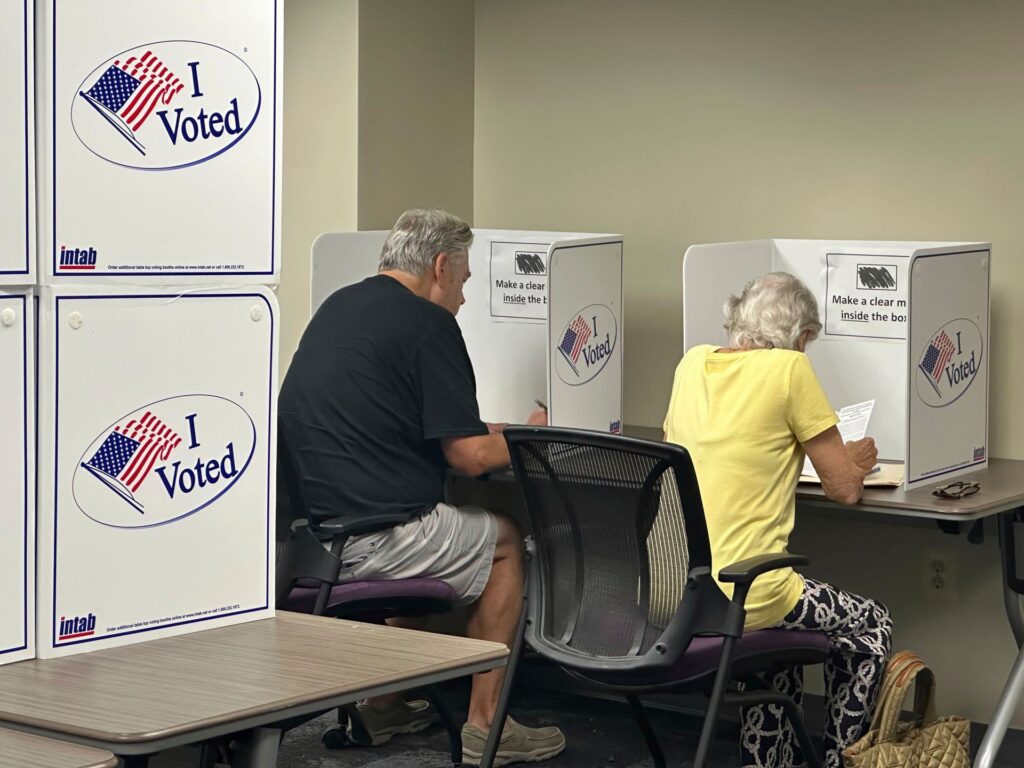
The move comes as Republicans increasingly emphasise the chance of noncitizen voting, despite little evidence of any significant risk posed. The United States Justice Department has sued Virginia for removing voters from registration rolls too close to the presidential election on November 5. The lawsuit, filed on Friday, comes in response to an executive order issued in August by Virginia’s Republican Governor Glenn Youngkin. It initiated the removal of individuals from voter registration rolls if officials are “unable to verify that they are citizens” through the state’s Department of Motor Vehicles. But the Justice Department says the executive order was issued with too little time before election day, violating a 90-day “quiet period” outlined in The National Voter Registration Act. That period requires official systematic removals at least three months ahead of a federal vote. “Congress adopted the National Voter Registration Act’s quiet period restriction to prevent error-prone, eleventh-hour efforts that all too often disenfranchise qualified voters,” Assistant US Attorney General Kristen Clarke said in a statement. “The right to vote is the cornerstone of our democracy and the Justice Department will continue to ensure that the rights of qualified voters are protected.” Youngkin had issued his order on August 7, which marked 90 days until the election. In a statement on Friday, the governor argued the executive order fell within the law. “Virginians – and Americans – will see this for exactly what it is: a desperate attempt to attack the legitimacy of the elections in the Commonwealth, the very crucible of American Democracy,” Youngkin said. He pledged state authorities “will defend these common-sense steps, that we are legally required to take, with every resource available to us”. “Virginia’s election will be secure and fair, and I will not stand idly by as this politically motivated action tries to interfere in our elections, period,” Youngkin said. Republicans and allies of former President Donald Trump – the current Republican candidate for the presidency – have increasingly pushed unfounded claims of possible election malfeasance ahead of this year’s vote. Those claims echo falsehoods spread about the 2020 election, which Trump has continued to falsely say was “stolen” through fraud. Some Republican officials have also advanced baseless claims that noncitizens are voting in large enough numbers to affect the outcome. In the US, only citizens can vote. Most voter administration is determined by state officials and legislatures, with only broad parameters from the federal government. Nearly all US states require some form of voter registration to cast a ballot, although many allow the registration to be done on election day. Ahead of the 2024 elections, several states – including Texas, Tennessee, Ohio and Alabama – have passed measures requiring higher burdens of proof to show a voter’s citizenship. Democracy monitors said those efforts may disenfranchise US citizens who are otherwise eligible to vote. The Brennan Center for Justice – a non-partisan policy organisation – found that noncitizen voting in the US is exceedingly rare. There is no evidence it had any bearing on recent elections. In 2017, the centre released a study looking at 23.5 million votes cast in the 2016 general election. Only 30 votes were flagged for suspected noncitizen voting. Data was not available on how many of those votes proved to have been cast by noncitizens. Adblock test (Why?)
